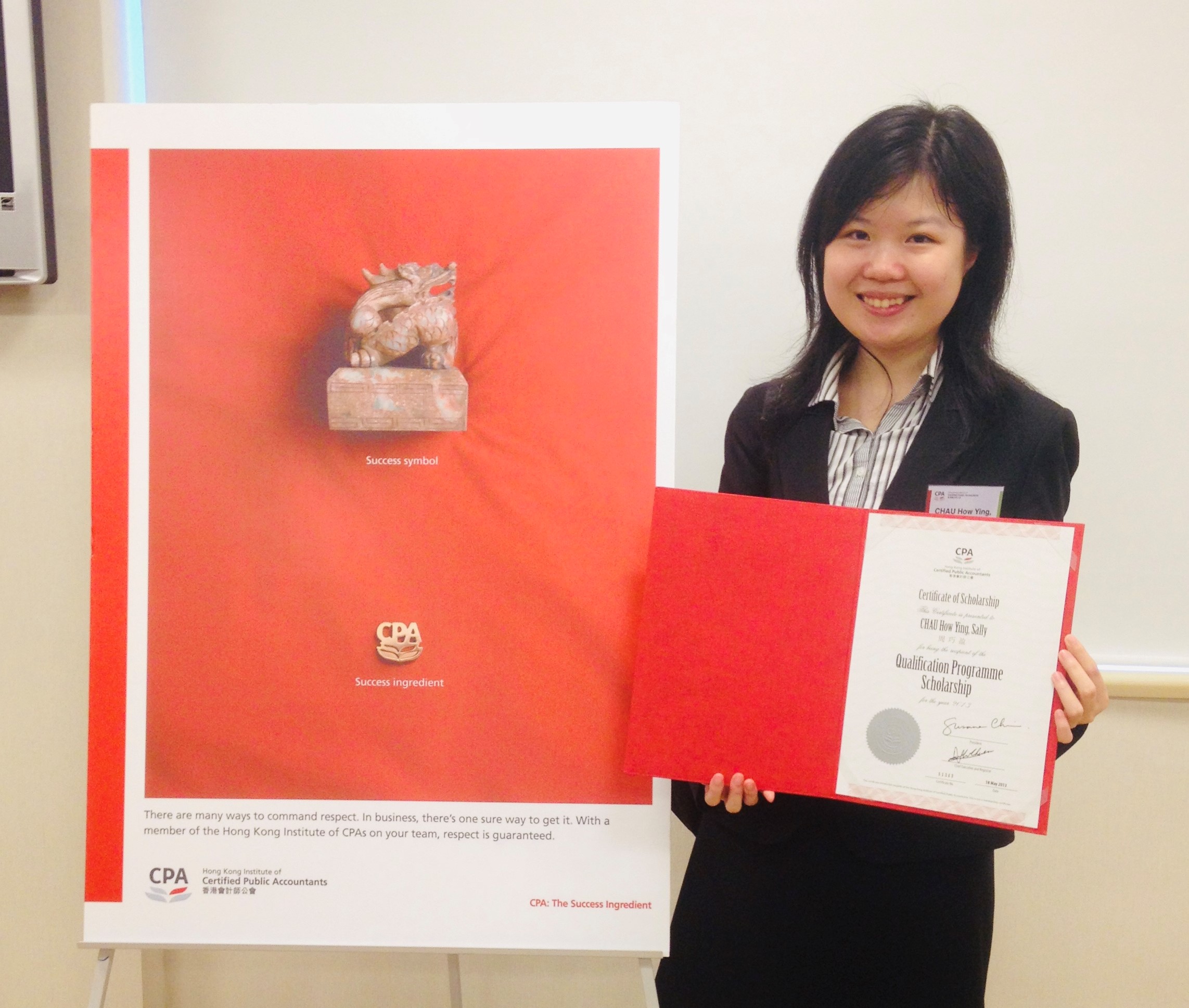From private to public
In both the banking and government sectors, CPA skills have stood Sally Chau, a QP graduate, in good stead.
Beginning with banking
Sally Chau executed a sharp career turn, moving from the banking industry to the public sector – and has since performed a diverse range of roles for the government. Now a Treasury Accountant for the Innovation and Technology Commission, she credits her background in accounting and finance for her ability to fill a range of roles requiring a broad array of skills.
“Since I was young, I’ve always loved figures and computation,” she says. “I enjoyed applying accounting concepts in daily life. So I thought it would be really interesting if I could choose accounting as my career. It was also part of my academic background since Secondary 4.”
That resulted in her studying for a Bachelor of Business Administration in Accounting and Finance at The University of Hong Kong, after which she decided to work in the banking industry, getting her first job as a Senior Officer in the Banking Returns and Compliance Team at Industrial and Commercial Bank of China (Asia) Limited (ICBC Asia).
“I wanted to start my career in the accounting field, and I thought that a job in the banking industry was also very relevant,” she says. “The job required me to compile banking returns, which suited my desire to take up an accounting job as it required the application of a lot of accounting knowledge. The job at ICBC Asia was a trainee post, which was attractive – I could be rotated to different departments and acquire more banking knowledge. The seniors there also provided me with a lot of guidance, and I learned a lot.”
She then moved to Bank of China (Hong Kong) Limited (BOCHK), drawn by the bank’s longer and larger presence in Hong Kong. “I thought I would be able to accept more challenges there, with more complex computations. I really hoped to get a more in-depth understanding of accounting matters.”
Where her role at ICBC Asia mainly involved preparing banking returns, at BOCHK she was given more opportunities to oversee them, using a variety of data sources to check their accuracy, which she says provided her with more training in how to dig out information.
Government goals
Her next career move involved a major change of scene, as she left the banking world behind in favour of the government sector, initially working as an Executive Officer at the Home Affairs Department. She was subsequently posted to the Environmental Protection Department, also as an Executive Officer, before taking up her current job.
“After working for several years in the banking sector, I thought it was time for me to equip myself with a wider range of skills,” she says. “I thought that working in the public sector was a chance to make a positive impact on society.”
“I liked being the Executive Officer and specializing in resource and system management. I was posted to different government departments to work with people from different backgrounds, employing a range of different skills."
“Some things are quite similar between banking and government. They’re both about having a meticulous personality: at banks you need to make sure returns are accurately prepared; in government you also have to be very careful and work very cautiously. In banking you’re trained to read a lot of materials like Banking Ordinances; similarly in government we have to strictly comply with different regulations, guidelines and circulars in our work. But there are some skills I was required to learn after entering government: for instance the Executive Officer post requires me to perform not only accounting-related tasks, but also procurement and administrative ones. In the banks I didn’t have much of a supervisory role, so in government I’ve learned some supervisory skills.”
She says while there has also been an overlap in the skills she’s used at the three government departments, the nature of the jobs were different. “At the Home Affairs Department it was my first time using certain accounting systems, and I also had to understand procurement procedures and handle tasks such as office accommodation and staff recruitment. At the Environmental Protection Department I also did some accounting and finance-related jobs, and I was also responsible for procurement, overseeing contractors and event management. At the Innovation and Technology Commission I changed to work as a Treasury Accountant and aimed to continue with my career development in the accounting field; my job duties have become much more focused on accounting and finance, following up on investment deals with co-investment partners and closely monitoring the expenditure status. It's quite challenging but really interesting to perform the investment-related tasks.”
Sally qualified as a CPA during her time working at the Home Affairs Department. “I wanted to become a CPA, so taking QP met my needs and helped me to achieve my goals,” she says. “The four modules of the QP cover most technical knowledge that is required of a CPA. There are many good points about QP; for example the learning packs that were provided to us were very comprehensive – many examples were provided so that we can understand very easily how to apply our knowledge. The workshops were really useful in stimulating us to brainstorm ideas to solve case problems; I think it’s a better way to absorb accounting knowledge. There was also some guidance from the workshop facilitators, so confusion and doubts can be removed easily. It’s very practical; we can share our ideas, and it allows us to think from a wider and deeper perspective.”
Interview and reporting by Richard Lord






